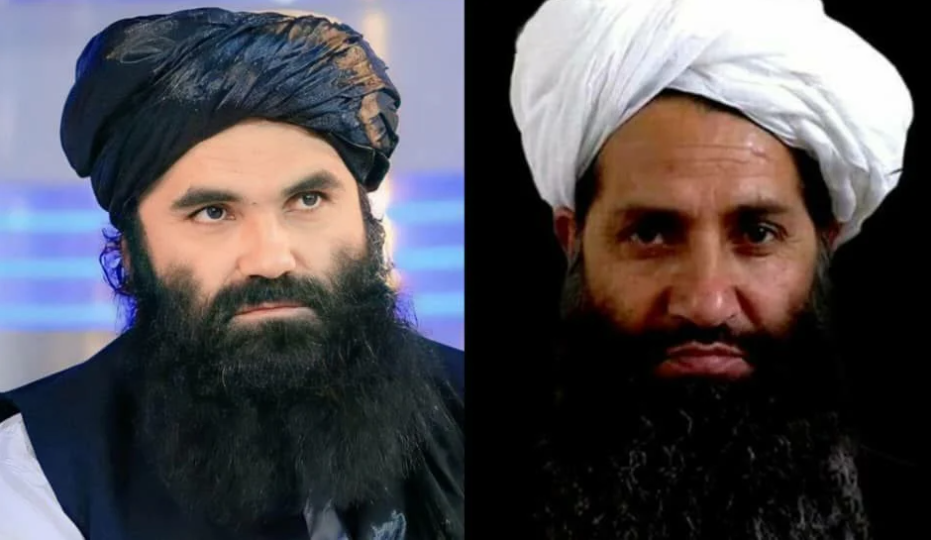As Afghanistan’s refugee crisis worsens, Akhundzada consolidates his power amid intra-Taliban tensions
The Supreme Leader of the Islamic Emirate, Hibatullah Akhundzada, has reassigned nine officials in an effort to consolidate his power against other Taliban factions, particularly the Haqqani Network. Internal tensions, however, are also accentuating ethnic and territorial divisions. Meanwhile, the internal humanitarian situation is worsening as a result of the forced repatriation of tens of thousands of refugees from Iran.
Kabul (AsiaNews) – The Supreme Leader of the Islamic Emirate of Afghanistan, Hibatullah Akhundzada, has reassigned nine officials to new positions, part of an ongoing power struggle within the Taliban leadership, which is marked by ideological, ethnic, and tribal divisions.
For the Afghan population, the ongoing humanitarian crisis is the worst in decades, exacerbated by the forced return of tens of thousands of refugees from Iran and Pakistan.
The appointments were announced on Wednesday and concern positions in the central government as well as provincial administrations.
Zia-ur-Rahman Madani, the former Taliban governor of Logar, is now deputy minister for Professional Affairs at the Ministry of Guidance and Religious Affairs. He was replaced by Salahuddin Ayoubi, former Taliban police chief in the southern province of Zabol.
Sayed Hassan Shah Agha, former Taliban deputy governor of Kandahar, now oversees Taliban finances in the Administrative Affairs Office, while Qudratullah Amini, former advisor to the Taliban Interior Ministry, is now Taliban deputy governor of Kabul, replacing Mohammad Younis Mokhles, who was promoted to advisor to the Interior Ministry.
In April and May, the Supreme Leader carried out a similar reshuffle, reducing the government size by 20 per cent.
Akhunzada has never explained these changes, but it is easy to imagine that this reshuffle is aimed at further boosting his leadership, with Kandahar as his power base (where a dedicated police force has also been created to protect the Supreme Leader) against other Taliban factions, in particular the one led by Sirajuddin Haqqani, who officially is still interior minister.
According to several experts, the Taliban's return to power exacerbated internal divisions that were previously papered over by the need to fight the foreign presence in Afghanistan that backed the previous government.
The transition from a guerrilla movement to a state administration has brought ideological divisions to the fore, as well as internal competition for power and resources.
Against this background, Akhunzada advocates a strict application of Islamic law and a return to the Taliban rule of the 1990s, even at the cost of international isolation. In fact, he is responsible for the bans on women, which led the International Criminal Court to issue an arrest warrant.
For its part, the Haqqani Network, led by Sijaruddin, has a more pragmatic vision and would even be willing to compromise with the international community to make the regime less isolated and ensure its long-term survival.
The Haqqani Network maintains independent financial resources, which contributes to its autonomy within the Taliban structure. This faction also includes Deputy Prime Minister Abdul Ghani Baradar, and Defence Minister Mullah Mohammad Yaqoob, son of the movement's founder, Mullah Omar.
In addition to seeking increased military and trade ties with Qatar, the United Arab Emirates, and India, Yaqoob once stated that the Taliban “should always listen to the legitimate demands of the people.”
Other leaders have also issued statements in recent months openly and publicly criticising the hardline wing. This is the case, for example, of Deputy Foreign Affairs Minister Abbas Stanikzai, who went into self-exile in the United Arab Emirates (where Haqqani remained for a time in recent months) after publicly supporting education for girls and women and even stating that individuals have the right to refuse orders contrary to Islamic law.
But these are not the only divisions. More than 4,400 people, mostly ethnic Tajiks and other non-Pashtun, have been laid off at the Ministry of Defence. Officially framed as a cost-cutting measure, the move has been interpreted as an attempt to consolidate Pashtun dominance over other ethnic groups.
In the northeastern province of Badakhshan, tensions have emerged following the growing marginalisation of Tajik commanders in the local administration and the destruction of opium fields.
While the Taliban continues to struggle for power, approximately half of the Afghan population – over 23 million people – is still in need of humanitarian assistance.
The situation is further aggravated by the return of Afghan refugees from Pakistan and Iran. in June alone, 500,000 people, 80,000 of them children, were repatriated from Iran, Save the Children reported recently.
Since January, an estimated 1.4 million Afghans have left Iran (often forcibly), which hosts millions of refugees due to decades of conflict. In March Iranian authorities said that they were unable to continue providing for Afghan refugees.
Following the war with Israel, Iran has accused Afghans of being spies for Washington and Tel Aviv, while attacks against refugees have increased.
In recent weeks, up to 20,000 people a day have crossed the border between the two countries, marking one of the worst migration crises of the last decade.
07/09/2021 09:39
02/09/2021 16:16
02/11/2023 17:07







.png)










